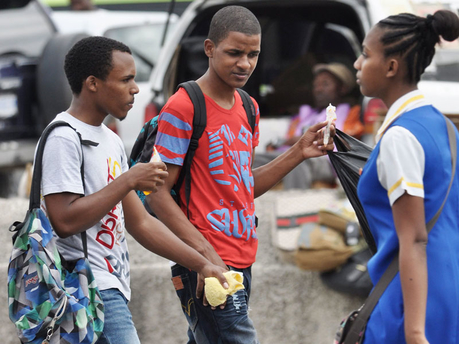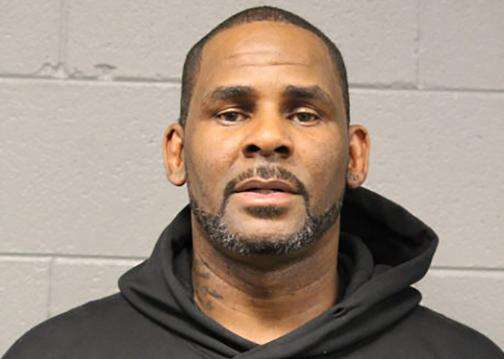Youth going about their business in the busy Corporate Area streets yesterday. – Jermaine Barnaby/Photographer
Gary Spaulding, Senior Gleaner Writer
Pay more attention to us! That’s the cry of the young in Jamaica resonating from a National Youth Values and Attitudes survey conducted in 20014.
The survey, conducted by the Centre for Leadership and Governance in the Department of Government at the University of the West Indies (UWI), Mona campus, found that the majority of Jamaican youth felt neglected by the place they call home.
Although they claimed to have been proud to be Jamaicans, the survey found that almost a half of the interviewees stated that they would be willing to surrender their citizenship to live in another country, many citing better opportunities.
DISSATISFIED WITH OPPORTUNITIES
The average response suggested that most of the youth were “satisfied” with the life that is available to them. Most, however, reported dissatisfaction with the opportunities that are available to them.
Youth under 18 are less inclined (43.2 per cent) to give up their citizenship and live in another country. And almost a half (49.3 per cent) of young adults said they would.
Asked how “proud” they were to be Jamaicans, 57 per cent stated that they were “extremely proud” and 31 per cent were “very proud”.
More than half of the interviewees reported being proud to hear the national anthem, and 35 per cent were very proud to hear it.
Nearly half the youth interviewed (49.8 per cent) highlighted crime as the major problems facing the country; unemployment, 19.2 per cent; and poverty, six per cent.
Problems at the community level were identified as unemployment 32 per cent, crime and violence 22 per cent; and poor infrastructure 12.8 per cent.
Some 60 per cent of the sample disagreed with the statement that being aggressive is associated with the Jamaican identity; 18.5 per cent was neutral; and 32 per cent agreed. The survey also found that youth were generally tolerant of others, noting, however, that the exceptions were tolerance of homosexuals and persons engaged in criminality.
Youth are operationally measured as persons between ages 14 and 26. Data collection lasted for three weeks between April 9, 2014 and April 30, 2014. Forty-six per cent of those surveyed described themselves as lower/working class; 48 per cent as middle; and 5.9 per cent as upper class. Males accounted for 47.5 per cent of the sample.
MAKING THE CONNECTION
Dr Lloyd Waller, who, along with Nicole Satchell and Gavin Daley, both lecturers in the Department of Government, undertook the survey, told The Gleaner that the research was undertaken to gauge the connection between values and the relationship youth had with certain institutions that are considered important to the Jamaican society.
“Having the right values and attitudes has long been recognised by many economists and development specialists as an important ingredient of economic and social development,” he said.
“The last two decades have seen several attempts by various organisations, groups, and institutions to arrest the decaying values and attitudes, which exist across the island, especially among the youth, as well as programmes and policies to engender positive development values and attitudes among this demographic.”
Waller said much of this has been based on assumptions regarding the attitudes and values of Jamaican youth, guided by a top-down approach to solve the problem.










